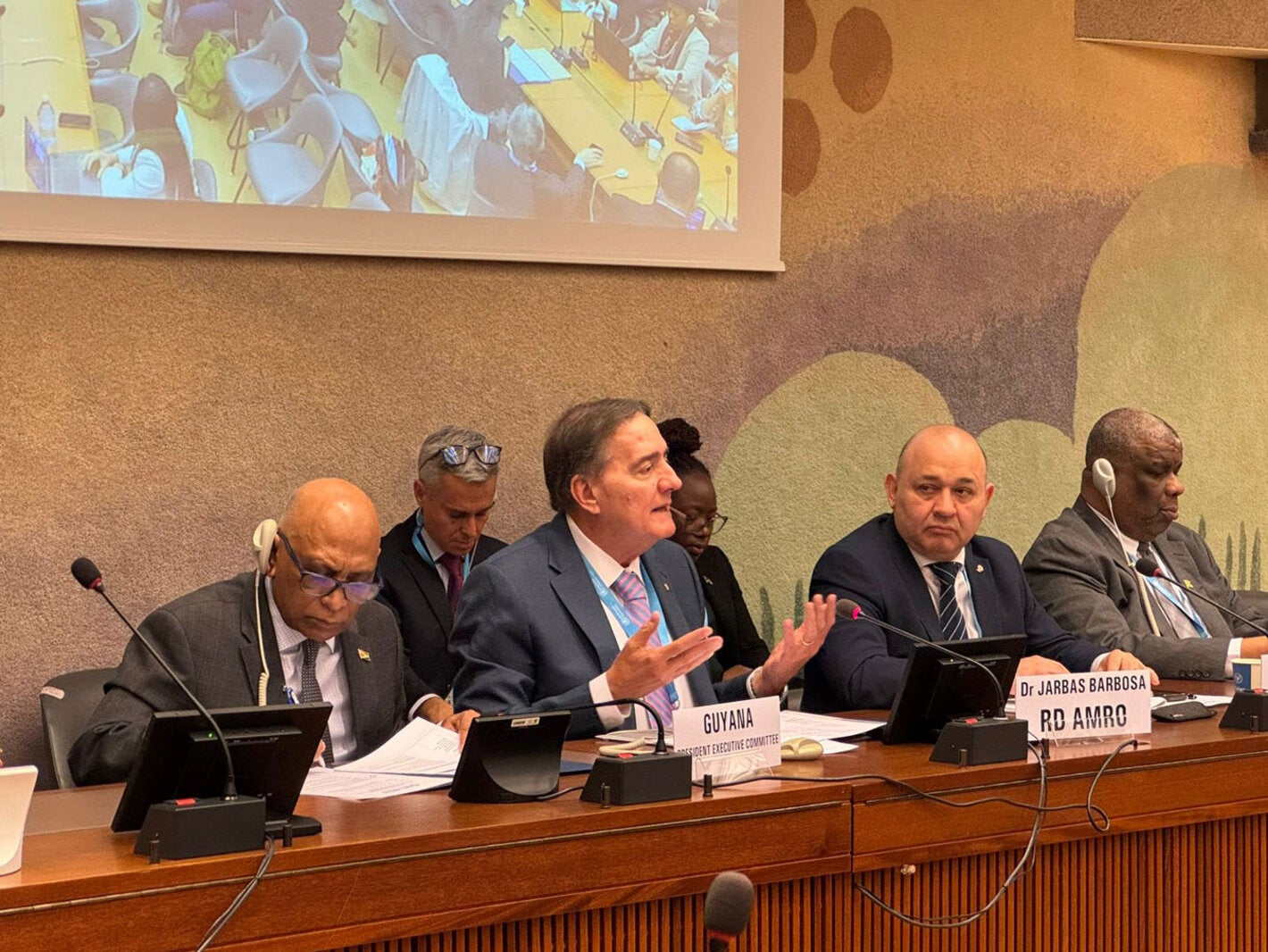
Geneva, Switzerland, May 19, 2025 (PAHO) - Within the framework of the 78th World Health Assembly (WHA78), the Director of the Pan American Health Organization (PAHO), Dr. Jarbas Barbosa, met with the heads of delegation from the countries of the Americas to discuss two crucial issues on the Assembly's agenda: the pandemic agreement and the WHO's program budget for the 2026-2027 biennium, including the scale of assessed contributions.
During his address, Dr. Barbosa celebrated the consensus reached by the negotiating countries on the text of the Pandemic Agreement, which will be considered for approval during this Assembly. "We are on the verge of a historic global commitment to prevent, prepare for, and jointly respond to pandemics, fostering multilateralism and uniting nations in the face of common threats," he stated.
Regarding the program budget for 2026-2027, he explained that this is the first based on the vision of the WHO's 14th General Programme of Work, focused on boosting impact in countries, promoting equity, and strengthening the resilience of health systems. He thanked the countries of the Region of the Americas for their active participation in the budget prioritization process.
Dr. Barbosa especially highlighted the proposed 20% increase in assessed contributions — the dues that countries pay as WHO Member States. These contributions, approved by the World Health Assembly every two years, are determined based on each country's income and population and constitute an essential source of funding. Assessed contributions cover less than 20% of the Organization's total budget. The rest of WHO's funding comes in the form of voluntary contributions.
"The increase in assessed contributions and the investment round — an additional measure to mobilize new funding pledges — are fundamental to increasing flexible and predictable financing so that the WHO can fulfill its mandate and technical cooperation priorities, while ensuring efficiency, transparency, and accountability," he emphasized. The Director urged countries to support this proposal.
He also drew attention to the 14% reduction in the budget allocated to the Region of the Americas compared to the previous biennium, a decrease that, while proportional among the WHO regions, must be managed with special care. He recalled that the Americas, despite having the lowest budget, is the least funded in proportional terms: in 2024-2025 it received only 47% of its approved budget, compared to more than 55% in other regions.
"The Region of the Americas is being affected by the financial crisis facing the WHO," stated Dr. Barbosa. "It is essential that Member States advocate for an equitable distribution of resources so that our regional priorities are not compromised," he added.
The meeting concluded with a call for regional unity to defend the interests of the Americas and ensure active participation in global public health debates.
The President of the PAHO Directing Council and Vice Minister of Governance and Health Surveillance of the Ministry of Public Health and Social Welfare of Paraguay, Dr. José Ortellado; the coordinator of the Group of Member States of the Americas (GRUA) and Permanent Secretary of the Ministry of Health and Wellness of Jamaica, Errol Greene; the Ambassador and Permanent Representative of the Mission of Guyana in Geneva, Dr. Leslie Ramsammy, who attended on behalf of the presidency of the PAHO Executive Committee; as well as representatives from 29 delegations of countries in the region, participated in the meeting.



